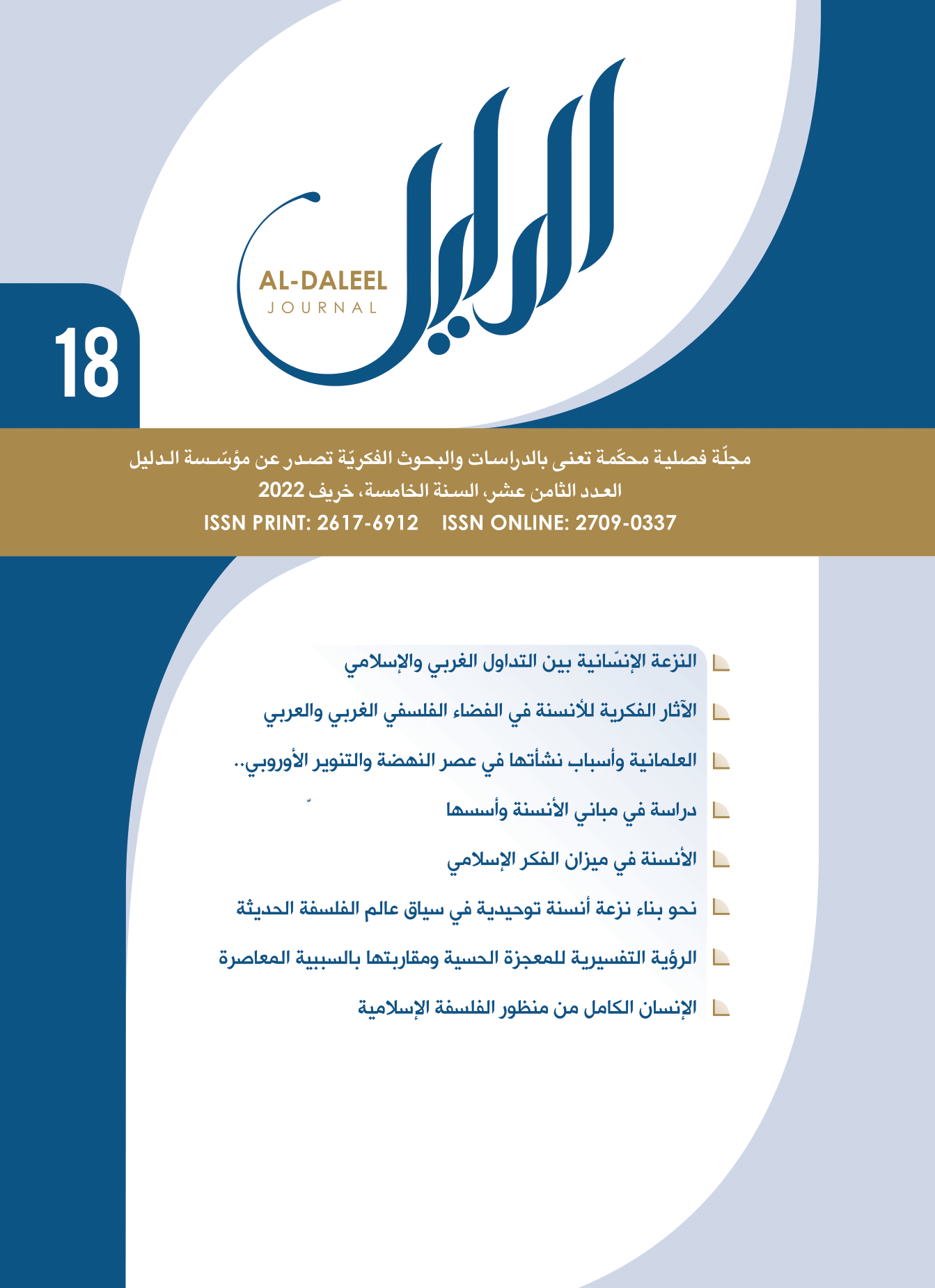Abstract
This study deals with humanism in the Western and Arab contexts, and the ambiguities and problems that the concept of (humanism) has. The study highlights the difference, in perception, between the two by showing the authoritative and conceptual bases on which it was built, whether in the Western or Arab deliberation. The study also discusses this topic, using examples from both contexts; examples that we have chosen just as samples but not the whole, to give a general perception about this issue. In the study, we have relied on a complex approach that combines history, description, comparison, and analysis, aiming, as much as possible, at covering the subject in its various aspects. We have concluded that the advent of humanism dates back to the very advent of the awareness of man’s uniqueness. In fact, the role of religions in this awareness cannot be denied at all. The study of the value of humanism in the Western thought cannot be true except by evoking the philosophical dimensions, whose features had become clear during the eighteenth and nineteenth centuries. Surely, the Arab-Islamic civilization abounds with examples of philosophers and others scholars in various fields of knowledge, who had authored works of no less importance and profundity than what the Western civilization had offered to the human heritage, and according to the Islamic authority that is compatible with the texts of Divine Revelation.
Keywords
humanism
humanist movement
Islamic heritage
philosophy
the West
Abstract
تتناول هذه الدراسة مسألة النزعة الإنسانية في السياقين الغربي والعربي، وما يعتري مفهوم (النزعة الإنسانية) من التباسات وإشكالات، وتبرز الدراسة الفارق في التصوّر بينهما ببيان الأسس المرجعية والتصوّرية التي بنيت عليها سواء في المجال التداولي الغربي أو العربي، كما تقف لبيان هذه المسألة عند نماذج من السياقين، وهي نماذج اخترناها من باب التمثيل لا الحصر تسمح ببناء تصوّر عام حول هذه القضيّة، كما أنّنا اعتمدنا في بحثنا على منهج مركّب يزاوج بين التاريخ والوصف والمقارنة والتحليل، بغرض الإحاطة بالموضوع بجوانبه المتعدّدة ما أمكن ذلك. وتوصلنا إلى أن ولادة النزعة الإنسانية ترجع إلى لحظة ولادة الوعي بفرادة الكائن البشري، ودور الأديان في هذا الوعي لا يمكن إنكاره البتة، وأن البحث في قيمة النزعة الانسانية في الفكر الغربي لا يمكن أن يستقيم إلا باستحضار الابعاد الفلسفية التي اتضحت معالمها خلال القرنين الثامن عشر والتاسع عشر، كما إن الحضارة العربية الإسلامية تزخر بنماذج من الفلاسفة وغيرهم في حقول معرفية مختلفة ممن أنتج نصوصًا، لا تقل أهمية وعمقا مما أنتجته الحضارة الغربية في التقليد الإنسي، ووفق المرجعية الإسلامية المتوافقة مع نصوص الوحي.
Keywords
التراث الإسلامي
الحركة الإنسانية
الغرب
الفلسفة
النزعة الإنسانية
